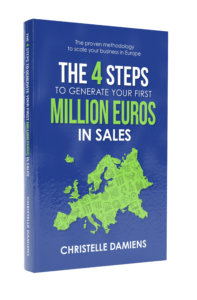Successful expansion into the European market is reliant on seven mission-critical export pillars. In this blog series, we will be covering each pillar in depth, beginning with the right product. There are different factors you need to consider in choosing the right products to ensure you succeed in Europe with your exports.
Four key factors as a potential export business will increase your chance of success:
- Focus on products with a proven track record
- Protect your IP
- Comply with European norms
- Position the product the right way
Focus on Your Products With a Proven Track Record
If you are entering the European market for the first time, focus on a limited number of products, or even one to begin with. The cost of commercialising a very large range of products in Europe is an important factor to consider. Here at Exportia, we often run field tests for our clients who have no idea of which product to choose.
When exporting into the European market, there are a few criteria to keep in mind when selecting the right products. We recommend selecting your number one seller, as you would have a large number of customers and possibly case studies to draw on.
A mature product often means any quality issues have been fine tuned, which is the first step to success. Europeans prefer to purchase products that are already established or have a proven track record. It helps to know the quality of the product is proven and tested by others, as the European market hesitates to buy merchandise if there’s no one to compare it with.
Intellectual Property Protection
Another factor to think about is how to protect your intellectual property (IP) regardless of the market and Europe is no different. Standard business practice is to protect your IP and should not be overlooked.
There are different ways to protect your intellectual property, but ask these questions first:
Which one to protect, my company name or the product name?
Decide whether you want to be known for your company name or through your product name. Choose what is appropriate for your business and what matters to you.
From which country should I protect my business or brand?
Decide how many countries inside the European Union you want to protect your brand. Madrid Protocol is a cost-effective system that will help you register a trademark in every European country. It’s best for businesses that are planning to stay in the market in the long run.
Do I need to hire a lawyer to register trademarks in Europe?
Of course, yes! You need to hire a lawyer to help you with all the legalities for your business. They can provide you with information if you can trademark your business.
Patenting is another way to protect your business before launching in overseas markets. By doing this, you are keeping your competitors away. Your Research and Development team is the one in charge of assessing the situation if your business can be patentable. Patent Cooperation Treaty (PCT) allows applicants to file patents in several countries simultaneously.
Patents and trademarks aren’t the only way to protect original ideas. You can also use copyright as protection. Especially in the service industry, since they don’t sell any physical products. Copyright is important to protect their ideas.
Comply to the European Norms and Standards
It’s a legal obligation for your business to comply with European norms and standards if you plan to expand overseas. Mostly for manufacturers, it’s common to meet the standards and comply with CE, as it assures a product’s compliance with EU health, safety, and environmental regulations.
The timing of your application is the key to know how strong your chances are of passing the European standards and the deadlines you must meet for approval. Also, having a local authorised representative to assist your business in handling documentation to prove your compliance with European standards.
Remember, you are expanding your business overseas, and following the rules and regulations is the next step towards success in the European market.
Positioning Your Product in Europe
The final step is to know your current position in the market. In every business, competitor research plays a vital role in creating an effective marketing strategy. It keeps your business in the trend’s loop, like pricing.
For businesses who want to thrive in the global market, understanding their current stand in comparison with other local companies allows you to prepare on what to expect when selling your products in the European market.
You can conduct a basic Google search by using the European Google domains like google.de for Germany or google.co.uk for the United Kingdom and so on. If you are not sure how to do it, here are a few tips you can use to create a competitor’s analysis:
- Check their product features
- Compare the benefits they provide versus your products
- Check the price levels
- Make a competition matrix to help you fill in the gaps
Also, don’t underestimate your indirect competitors. While doing your competitors’ review, make sure to include them. Why? Because they might be what the local clients are used to. A perfect example of this is one of my clients is a manufacturing line. And their indirect competitor is someone who sells finished goods.
These are just some factors you need to consider when expanding your business into the European market. Having seen the transformation of businesses that work with us over the years, going from zero sales in Europe to multi-million euros, our passion is to scale more businesses.
Want to know more about how to succeed in Europe with the right product? Get your FREE copy of “The 4 Steps to Generate Your First Million Euros in Sales” book here. : https://www.exportia.com.au/export-business-europe/




